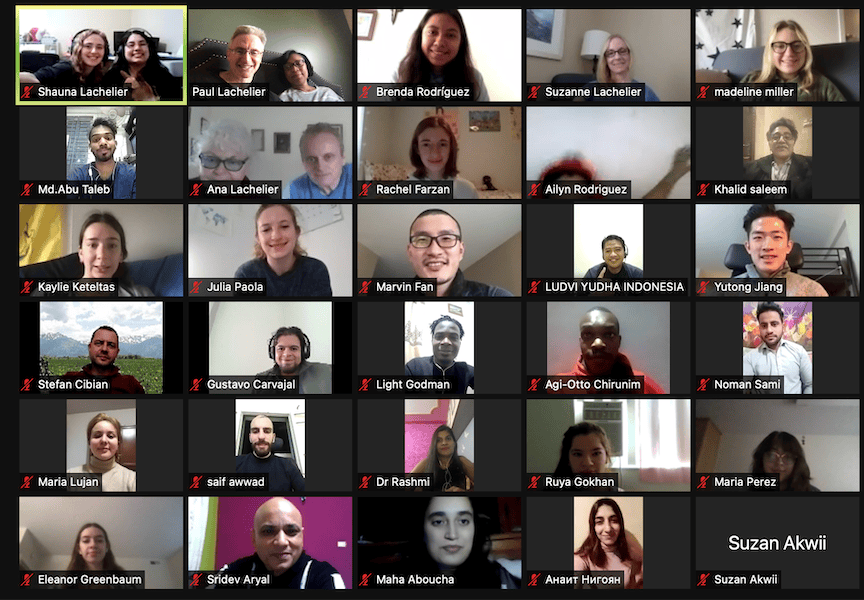Sixth 2021 International Family Dialogue Focuses on Education & Leisure
On Sunday, November 14, 40 people from 17 countries worldwide — Venezuela, Costa Rica, Mexico, USA, Nigeria, Burundi, Uganda, Tunisia, Jordan, Turkey, Romania, Ukraine, Pakistan, India, Nepal, Bangladesh and Indonesia — engaged in a rich, wide-ranging discussion of games, religion, cell phones and social media’s impacts on family health.
This was the last in a series of six dialogues that started in May this year focused on the overarching question: what do families worldwide need to be safe and healthy? The dialogues were part of the Family Diplomacy Initiative, Learning Life’s flagship program devoted to connecting families across borders to share and learn together. The November 14 dialogue started with a brief video about the dialogues, then some context from Learning Life’s founder, Paul Lachelier. To view the full video-recorded dialogue, click here.

All six family dialogues held from May to November this year were free, and held, in English, on Sundays, 12:00-1:30pm EST (New York time) via Zoom. Each dialogue had a different date and topic as follows:
June 27: Global Trends in Family Life: How are families changing worldwide, and how does this impact family health and security? Topics might include global patterns and trends in family demographics, parenting, childhood, family life, aspirations and viewpoints, etc.
July 25: Health Care Systems: How do health care systems shape family health and security? What exists and what’s lacking in local-to-global health care institutions? What are some of the major global health trends, threats, and some of the most promising large-scale solutions?
August 15: Work & Economics: How do economic forces affect family health and security? Topics might include work and unemployment, workplace safety, automation, income and wealth inequality, economic migration and remittances, work-life balance, etc.
September 12: The Environment: How do natural and man-made environmental conditions, local to global, impact family health and security? Topics might include home and neighborhood crime and safety, community life, green space, housing and segregation, transportation, pollution, climate change, etc.
October 10: Politics: How do local to global politics influence family health and security? Topics might include government service provision, leadership, civil society, governmental power inequalities between and within nations, immigration and refugee policy, war, human rights, rule of law, corruption, legal discrimination, etc.
November 14: Education & Leisure: How do education and leisure time activities influence family health and security? Topics might include formal and informal education, leisure patterns and trends, literacy, early childhood education, gender and class inequalities, etc.
Learning Life will be back in 2022 with more international dialogues. In the meantime, check out our Youtube Channel for all six 2021 dialogue videos, plus other videos. To participate in future family diplomacy dialogues, please complete this Family Diplomat application survey.

